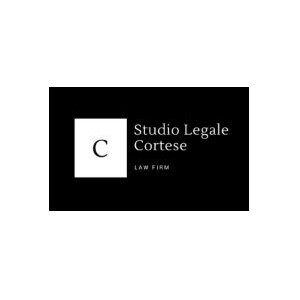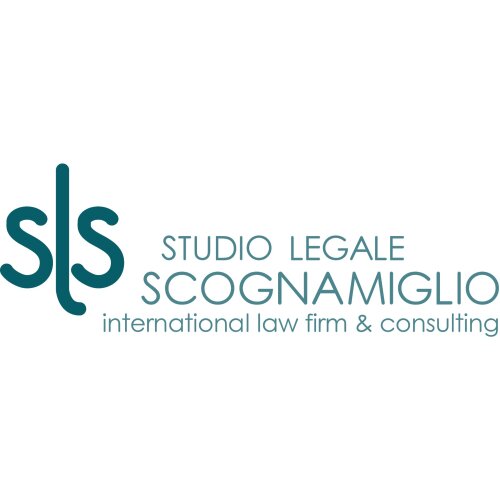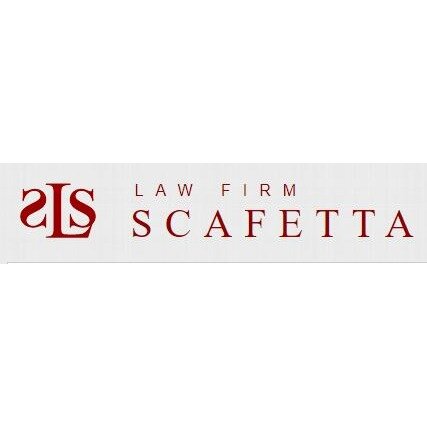Best Conveyancing Lawyers in Naples
Share your needs with us, get contacted by law firms.
Free. Takes 2 min.
Free Guide to Hiring a Real Estate Lawyer
List of the best lawyers in Naples, Italy
About Conveyancing Law in Naples, Italy
Conveyancing in Naples, Italy refers to the legal process of transferring ownership of real property from one person or entity to another. This process involves a series of checks, document reviews, and registrations to ensure that the buyer obtains a clear and legal title to the property. The conveyancing system in Italy is founded on civil law principles and involves notaries as public officials who play a crucial role in overseeing, authenticating, and recording the transaction. In Naples, as in the rest of Italy, property transactions must comply with strict legal requirements to prevent fraud and guarantee legal certainty.
Why You May Need a Lawyer
Many individuals find conveyancing in Naples complex because of the strict legal requirements, thorough documentation, and involvement of multiple public bodies. Here are some common situations where you may need legal assistance:
- If you are purchasing or selling a property and need to ensure clear title transfer
- If you are a foreign buyer unfamiliar with Italian property laws and procedures
- If there are disputes regarding property boundaries, ownership, or defects in title
- If you are dealing with inherited property or joint ownership situations
- If you need help understanding your tax obligations related to the transaction
- If you require assistance with drafting, reviewing, or negotiating contracts
- If you are seeking to resolve issues related to liens, debts, or encumbrances on the property
- If you want to perform thorough due diligence before committing to a purchase
Local Laws Overview
Conveyancing in Naples, as in the rest of Italy, is governed by the Italian Civil Code and specific property laws. Here are key aspects of local laws to be aware of:
- All property transactions must be formalized before a qualified notary, who will draft and register the notarial deed of sale
- Preliminary contracts (Compromesso) are commonly used to define the main terms of the transaction and bind both parties prior to the final deed
- Notaries conduct comprehensive checks regarding the legitimacy of the seller's ownership, land registry compliance, mortgage status, and any legal encumbrances
- Buyers must pay corresponding registration, cadastral, and mortgage taxes at the time of the final deed
- Foreign purchasers may need to obtain an Italian tax code (codice fiscale) to complete the transaction
- All property documentation must be accurate and up to date in both the Land Registry (Catasto) and Real Estate Registry (Conservatoria)
- Anti-money laundering laws require parties to disclose the source of funds and uphold transparency requirements
- For properties with historical or cultural value, special permissions and restrictions may apply
Frequently Asked Questions
What is the role of the notary in a property transaction in Naples?
The notary is a public official responsible for drafting, authenticating, and recording the sale deed. They ensure all legal requirements are met, check ownership, verify the absence of encumbrances, and register the transaction with the local authorities.
Can foreigners buy property in Naples, Italy?
Yes, foreigners can purchase property in Naples. They may need to meet certain requirements, such as obtaining an Italian tax code and verifying that their home country has reciprocal agreements with Italy.
What documents are needed to buy property in Naples?
Typically, you need an identity document, Italian tax code, proof of funds, the preliminary contract, property title documents, and up-to-date registry certificates showing the property's legal and cadastral status.
What is a preliminary contract (Compromesso)?
A preliminary contract is a binding agreement that outlines the terms and obligations of both buyer and seller before signing the final deed. It usually involves a deposit and is commonly used to secure the transaction.
Do I need legal representation during conveyancing?
While it is not mandatory to have a lawyer, legal representation is highly advisable, particularly for non-Italians or in complex transactions, to ensure proper due diligence and protection of your interests.
What are the major taxes involved in buying or selling property?
Buyers typically pay registration tax, cadastral tax, and mortgage tax. The exact amounts depend on the property's use (main residence or second home) and its status (new or existing). Sellers may be liable for capital gains tax under specific circumstances.
How long does the conveyancing process take in Naples?
The duration can vary but generally takes between one to three months, depending on the complexity of the transaction, the thoroughness of due diligence, and the speed of documentation.
How can I ensure the property is free from debts or mortgages?
The notary and your lawyer will perform checks at both the Land Registry and the Real Estate Registry to confirm that the property has no outstanding mortgages, liens, legal claims, or unpaid taxes.
What should I be aware of regarding inherited properties?
Inherited properties often involve additional checks, such as confirming clear succession, resolving joint ownership issues, and ensuring all inheritance taxes have been paid before proceeding with the sale.
What happens on the day of completion?
On completion day, both parties sign the final deed before the notary, payment is made, and keys are handed over. The notary then registers the deed, officially transferring ownership to the buyer.
Additional Resources
If you need more information or assistance, the following organizations and resources may be helpful:
- Consiglio Nazionale del Notariato (Notary National Council) - Provides a searchable database of notaries in the Naples area and useful guides on property transactions
- Agenzia delle Entrate (Italian Revenue Agency) - Offers information on property taxes and registration procedures
- Comune di Napoli (Naples Municipality) - Often has resources on local zoning, building permissions, and property regulations
- Consulates and foreign chambers of commerce in Naples - Can assist expatriates and foreign nationals with legal procedures
- Local legal aid societies and lawyers specializing in real estate law
Next Steps
If you are considering buying, selling, or resolving issues with property in Naples, here is what you should do next:
- Seek an initial consultation with a lawyer experienced in conveyancing and real estate law in Naples
- Prepare all relevant documents, such as identification, existing property deeds, and proof of funds
- Ask your lawyer to perform property due diligence, check for encumbrances, and review the contractual terms
- If you are a foreigner, ensure you obtain an Italian tax code and clarify any additional requirements with your advisor
- Engage a notary to formalize the transaction and handle the official registration process
- Ensure all taxes and fees are calculated and accounted for before the final signing
- Keep detailed records of all communications and transactions for future reference
Taking these proactive steps will help protect your interests and ensure that the conveyancing process in Naples, Italy proceeds smoothly and in accordance with the law.
Lawzana helps you find the best lawyers and law firms in Naples through a curated and pre-screened list of qualified legal professionals. Our platform offers rankings and detailed profiles of attorneys and law firms, allowing you to compare based on practice areas, including Conveyancing, experience, and client feedback.
Each profile includes a description of the firm's areas of practice, client reviews, team members and partners, year of establishment, spoken languages, office locations, contact information, social media presence, and any published articles or resources. Most firms on our platform speak English and are experienced in both local and international legal matters.
Get a quote from top-rated law firms in Naples, Italy — quickly, securely, and without unnecessary hassle.
Disclaimer:
The information provided on this page is for general informational purposes only and does not constitute legal advice. While we strive to ensure the accuracy and relevance of the content, legal information may change over time, and interpretations of the law can vary. You should always consult with a qualified legal professional for advice specific to your situation.
We disclaim all liability for actions taken or not taken based on the content of this page. If you believe any information is incorrect or outdated, please contact us, and we will review and update it where appropriate.













